What specific plans do you have to address poverty and the vulnerability of the working poor in NYC?
With the cost of living rising at nearly three times the rate of wages, 2.5 million working-age New Yorkers are struggling to provide food, housing, and other basic necessities for their families.
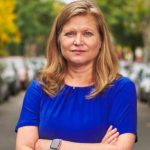
Kathryn Garcia
The core of my COVID-19 recovery plan is to support the most vulnerable New Yorkers with meaningful economic relief: free childcare, support for small businesses, a jobs pipeline for CUNY and trades schools graduates, and universal broadband. As someone who has worked closely with frontline essential workers for years to deliver critical services, I know that we have an obligation to protect workers and build a solid work environment. I will double-down on job growth and economic mobility, building a pipeline from our City’s community colleges and trade schools to good-paying jobs in biotech, green infrastructure and renewable energy. I will create expanded protections for workers, including free childcare for working families, and more strongly enforce our paid sick leave and fair work week laws.
As the City’s COVID-19 Food Czar, I was responsible for developing and implementing an emergency food delivery program to make sure New Yorkers did not go hungry during the pandemic. I stood up an operation that successfully provided over 1 million meals per day to New Yorkers all across the City. The pandemic has exacerbated existing inequities in our communities, and it’s critical that we make dismantling them a priority as we recover from the pandemic. My comprehensive plan to fight food insecurity includes reducing food waste, increasing SNAP enrollment, preparing for future emergencies, supporting urban agriculture, and increasing access to healthy food.
The key to all policy making is to bring all the stakeholders to the table. The communities most impacted by COVID must have a say in how we move forward, and will have the best insight into what is actually needed on the ground, and then how to best implement the solution.
Read the Full Questionnaire
Kathryn Garcia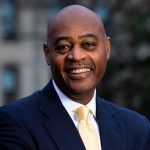 Ray McGuire
Ray McGuire
I will station teams comprising a range of city agencies, including Health and Mental Hygiene, Housing, Parks, and Small Business Services to underserved areas, and embed community engagement officials to connect people to social services and accelerate repairs and investments in public spaces. Those tailored support services will include mental health counseling and substance abuse treatment programs. Addressing educational needs like broadband and adequate wifi are critical for students in need. Their parents should also have proper childcare, and job training and placement to get back on their feet and comfortably support their family. I will ensure a pathway to permanent housing for all and will create robust food programs to eliminate food insecurity.
Read the Full Questionnaire
Ray McGuire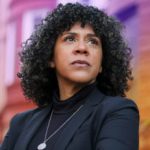 Dianne Morales
Dianne Morales
My administration will be shaped by the understanding that our biggest challenges are systemic. My platform is built on the belief that politics should work for all the people and that we are best able to grow when vulnerable New Yorkers are prioritized, oppressive systems are eliminated and barriers are removed. The pandemic has only worsened the problems I have dedicated my life to solving. Housing, economic and health disparities were all present but have deepened. We cannot and must not continue to ignore that our city is built on the backs of Black and brown women, immigrants, disabled people, the LGBTQ+ community, and the working poor. They have been the invisible drivers keeping the city going, yet continue to be left behind by our policymakers.
My immediate priorities, and my guiding principles for my mayoralty, are about creating economic justice and centering working-class Black and brown New Yorkers, particularly women, who are the backbone of our city. I plan to enshrine housing as a human right by creating more permanent supportive housing, making evictions more difficult and less frequent, and strengthening NYCHA.
As a former teacher and mom to two public school students, integrating our schools and creating educational equity is near to my heart and a top priority for my administration. I will fully fund schools, in part by removing police from schools and directing that money towards services, in order to make capital improvements to schools, reduce class sizes, and expand pre-K and 3-K. Most critically, I will work to desegregate our schools by ending all racist and inequitable admissions tests and processes, reducing charter schools’ power, and assessing and addressing inequitable funding. Women are much more likely to be primary caregivers to children, and safer, better funded, more equitable schools is a critical part of gender equity.
I will also work to protect and expand workers’ right, by protecting city workers, who are predominately women, from layoffs, aggressively monitoring and enforcing pay equity laws, decriminalizing sex work, expanding the Freelance Isn’t Free Act with increased protections for gig, domestic, nail salon, for hire and street vendors, and extending Just Cause employment protections to as many workers as possible.
Additionally, I will work to undo the health inequities, caused by systemic racism and economic injustice, that pervade our city. I’m committed to increasing public health access, education, and support, especially for Black mothers. In NYC, a Black mother is 12 times more likely to die we’re 12 times more likely to die during pregnancy (worse than the national average), and this is unacceptable. I will ensure funding for programs that continue to increase reproductive and maternal healthcare, especially in our communities of color, and will also continue the funding for the Abortion Access Fund. Though our best healthcare facilities are among the best in the world, access to those hospitals and resources is not equitable. As mayor I would move to ensure coverage of every New Yorker, starting with those who are hardest hit by our current inequities.
This is only a portion of my policy platform that addresses economic injustice — in fact, the entirety of my plans and campaign are dedicated to addressing this root inequity. The people who help keep New York City afloat, in and out of a pandemic, are the same ones struggling because our system was designed for them to struggle. Every action I take as Mayor will work to combat that.
Read the Full Questionnaire
Dianne Morales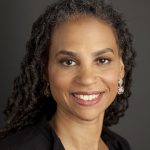 Maya Wiley
Maya Wiley
As previously mentioned, my Universal Community Care platform includes a proposal for a care income, which would reorient our efforts away from criminalizing poor families, and toward supporting their material needs. 100,000 of the most high need families would be eligible for an annual $5,000 grant to use toward caregiving expenses. About half of home-based child care providers are located in moderate- or high-poverty density areas, and less than one third are paid for providing care. Our care income therefore targets vulnerable New Yorkers, who are providing indispensable services to our communities.
Read the Full Questionnaire
Maya Wiley Andrew Yang
Andrew Yang
My administration will launch the largest basic income program in the country. Through this program, 500,000 New Yorkers with the greatest need will receive a basic income that will help give them a path forward. Our goal is to end extreme poverty in New York City by putting cash relief directly into the hands of those who desperately need help right now, ensuring that every household has an annual income that is at least above extreme poverty, taking into account the true cost of living in New York City. Any New Yorker, regardless of their immigration status or life experience (ie. past experience with incarceration or the criminal justice system, experience of homelessness), will be eligible to receive cash relief.
My administration will also launch the People’s Bank of New York City. The People’s Bank has two objectives: (1) ensure every New Yorker can access basic financial products and services, like checking accounts, and has the opportunity to save money affordably, build credit, and secure small business loans; and (2) Support small business lending in underserved communities by guaranteeing loans and loan portfolios. This will help New Yorkers in need avoid predatory businesses such as check cashing and increase their financial security. It will also allow entrepreneurs who would normally struggle to be approved for a reasonable loan to access capital.
Read the Full Questionnaire
Andrew Yang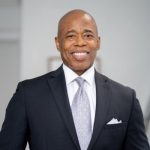
Eric Adams
I have proposed the NYC AID (Advanced Income Deployment) initiative to get struggling individuals and families their Earned Income Tax Credits (EITC) in advanced monthly payments, while also substantially increasing the amounts of the credits to deliver the high level of aid needed during our financial crisis.
Under my plan, a New York City family with two children on the edge of poverty earning $30,000 a year would receive approximately $3,000 annually or about $250 a month from a boosted City EITC program. Currently, that same family would receive about $250 for the entire year from those same credits. Credits would be paid out monthly as an advance by the City on qualifying New Yorkers’ past annual earnings.
We also need to better manage our food resources to fight hunger. There is an overall lack of information of available food resources throughout the five boroughs. Poor communication and information sharing negatively impacts efforts to connect food insecure individuals with SNAP benefits, food pantries, soup kitchens and other food resources. We will form an integrated and community-engaged structure to coordinate food policy in NYC. A critical component of this structure will be to create and maintain easily accessible databases that New Yorkers and public officials can use to monitor and ensure equitable access to nutritious food across all of our communities.
In addition, we must help the unbanked and underbanked increase access to resources and build wealth. New York City has 350,000 households that are unbanked and another 680,000 households that are underbanked, meaning they must rely on services such as check cashing or payday loans. Without access to proper banking we are sidelining thousands of people from our economy and we are allowing industries such as payday lending to flourish that profit off of poverty. Community-based banks in lower-income areas that remove minimum balance requirements and overdraft fees will be granted property tax relief, or their landlords will, in exchange for sharing that relief as a rent break.
Read the Full Questionnaire
Eric Adams
Shaun Donovan
One of my biggest proposals to decrease poverty is providing Equity Bonds. In this plan, we would provide Equity Bonds of $1,000 to every child in New York City. The plan would also provide annual deposits of up to $2,000 for public, charter, and low-income private school students.
This investment would immediately begin to tackle generational wealth disparities that play a fundamental role in systemic inequality. Funds would be accessible to enrollees upon graduation from a New York City school, attainment of a G.E.D. or apprenticeship (including a grace period), for purposes like paying for college, buying a home, starting a business, eradicating debt, and other methods of achieving economic security.
You can learn more about that proposal here.